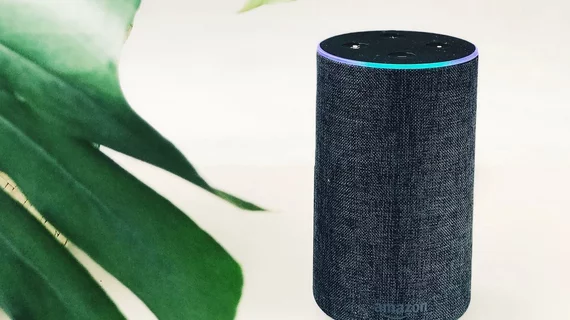Paging Dr. Alexa to the living room: Smart speakers becoming healthcare aides
In the wake of Alexa’s success at gaining HIPAA-compliant medical skills, AI developers are working to offer smart speakers that do everything from warning homebound people they’re having a heart attack to taking clinical notes for physicians during patient visits.
California Healthline has posted an update on the activity.
“Amazon’s efforts in this domain are important because, with its 100 million smart devices in use worldwide, it could radically change the way consumers get health information and even treatment—and not just tech-savvy consumers,” the outlet reports. “Analysts expect 55% of U.S. households will have smart speakers by 2022.”
The article cites a study in which University of Washington researchers taught not only Alexa but also an Apple iPhone and Samsung Galaxy smartphone to listen for agonal breathing. That’s the gasping sound that many patients present near the start of a cardiac arrest. In the study, the devices identified the symptom with 97% accuracy.
“Many medical technology companies are tantalized by the possibilities offered by Alexa and similar technologies for an aging population,” California Healthline reports. “A wearable device could transmit information about falls or an uneven gait. Alexa could potentially combat loneliness. It is learning how to make conversation.”
The piece runs through several variations on the technology already in experimental use in clinical settings.
Read the whole thing:

